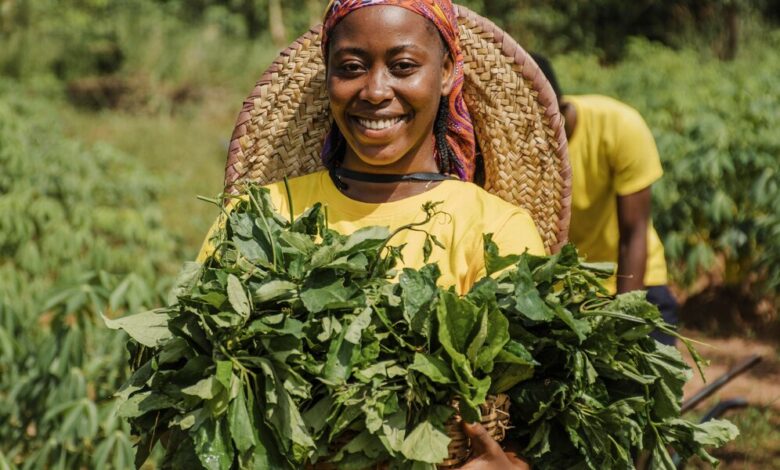How to Earn Consistently Through Managu Farming

Managu farming offers a low-cost, high-return farming opportunity for individuals starting with little capital. With rising demand for healthy and organic foods, managu has become a popular choice among urban consumers. Moreover, it thrives in various regions of Kenya, requiring minimal maintenance compared to more capital-intensive crops like avocado or maize. With the right approach, managu farming can provide a steady income, even for individuals who are financially struggling or have limited resources.
Agricultural Landscape in Kenya
Kenya’s agricultural sector is primarily dependent on smallholder farmers who grow a range of crops, from staple foods to high-value vegetables. The government and various organizations have increasingly invested in promoting sustainable farming practices, offering farmers opportunities to improve their livelihoods. Crops such as managu, which thrive in Kenya’s diverse climate zones, can offer lucrative returns with less financial investment.
Starting Your One-Acre Managu Farm: A Step-by-Step Guide
1. Land Acquisition: Buying vs. Leasing
To start managu farming in Kenya, acquiring land is the first step. You can either buy or lease land, depending on your budget and long-term plans.
Buying Land
- Cost Range: Land prices in Kenya vary significantly depending on the location. In rural areas, you can expect to pay between Ksh 100,000 to Ksh 500,000 per acre, while in more developed areas, prices may go as high as Ksh 1 million per acre.
- Legal Tips: Ensure the land has proper documentation (title deed) and undergoes a legal verification process. It’s advisable to seek legal counsel or use a trusted land agent to avoid scams or disputes.
Leasing Land
- Cost Range: Leasing land is often cheaper in the short term. In rural areas, land leases range from Ksh 15,000 to Ksh 50,000 per acre per year, depending on the location.
- Legal Tips: Always sign a lease agreement that clearly outlines terms, payment schedules, and duration. Avoid informal or oral agreements to prevent conflicts in the future.
2. Preparing Your Land for Planting
Managu thrives in well-drained, fertile soil. Here’s how to prepare your land:
- Soil Testing: Conduct a soil test to determine its pH and nutrient levels. Managu prefers slightly acidic soil (pH 6.0-6.5).
- Land Clearing: Clear the land of any weeds, bushes, or debris. Use a hand hoe, tractor, or hired labor for larger plots.
- Fertilization: Add compost or organic manure to enhance soil fertility. Managu grows well with minimal chemical fertilizers.
3. Cost Breakdown for One Acre of Managu Farming
Initial Setup Costs
| Item | Estimated Cost (Ksh) |
|---|---|
| Land (Leasing) | 30,000 – 50,000 |
| Land Clearing and Preparation | 10,000 – 15,000 |
| Managu Seedlings (5,000 plants) | 10,000 – 20,000 |
| Fertilizers (Organic) | 5,000 – 10,000 |
| Irrigation Equipment (Drip) | 25,000 – 35,000 |
| Labor (1-2 months) | 20,000 – 30,000 |
| Total Estimated Cost | Ksh 100,000 – 150,000 |
Ongoing Costs (Annual)
| Item | Estimated Cost (Ksh) |
|---|---|
| Fertilizers (Organic) | 5,000 – 10,000 |
| Irrigation Maintenance | 5,000 – 10,000 |
| Labor (Harvesting, Weeding) | 15,000 – 20,000 |
| Miscellaneous Expenses | 5,000 – 10,000 |
| Total Annual Cost | Ksh 30,000 – 50,000 |
4. Profit Margins and Income Projections
Managu farming has a quick turnaround, with harvests typically occurring 2-3 months after planting. The main income comes from selling fresh managu leaves, which are highly sought after in local markets. Here’s a realistic income projection over a 3-8 year period:
Year 1:
- Yield: 5,000 to 6,000 kg of managu per acre
- Market Price: Ksh 20 – 30 per kg (varies depending on region)
- Revenue: Ksh 100,000 – 180,000
Year 2-3 (After Initial Investment):
- Yield: 7,000 to 8,000 kg per acre
- Market Price: Ksh 20 – 30 per kg
- Revenue: Ksh 140,000 – 240,000
Year 4-5 (Mature Farm):
- Yield: 9,000 to 10,000 kg per acre
- Market Price: Ksh 25 – 35 per kg (prices increase as demand rises)
- Revenue: Ksh 225,000 – 350,000
5. Comparing Managu Farming Profits with Other Wealth-Building Paths in Kenya
Compared to traditional business ventures, managu farming is more accessible and offers faster returns. Here’s why managu farming outperforms other wealth-building avenues in Kenya:
- Low Capital Requirements: Starting a managu farm requires minimal capital compared to starting a retail shop or manufacturing business.
- Quick Returns: Managu farming provides income within 2-3 months, unlike real estate or other long-term investments.
- Consistent Demand: As demand for fresh vegetables increases in urban areas, managu farmers experience steady sales, especially with organic produce.
In comparison, starting a retail shop or a restaurant often requires a larger investment, higher overheads, and longer wait times for profits. These ventures can also be affected by market competition and economic downturns.
Smart Investment Strategies for Beginners and Scaling Farmers
Investment Tips for Beginners:
- Start Small: Start with a quarter-acre or half-acre of land and scale as you gain more experience.
- Reinvest Profits: In the first few years, reinvest your profits into expanding your farm, purchasing better irrigation systems, or hiring additional labor.
- Diversify: In addition to managu, consider growing other high-value crops like spinach, sukuma, or herbs to diversify income streams.
Scaling Tips for Experienced Farmers:
- Increase Acreage: Once you’ve mastered the basics, consider expanding your farm by leasing or buying additional land.
- Value-Added Products: You can also start producing value-added products like dried managu or managu powder, which can be sold at a premium in supermarkets or health food stores.
- Invest in Storage: Develop storage systems to keep produce fresh for longer periods and manage fluctuations in market demand.
Market Access: Where to Sell Your Managu
The demand for managu is high in both rural and urban areas, especially in Nairobi, Kisumu, and other major towns. Here’s where you can sell your produce:
- Local Markets: Farmers’ markets and local grocery stores.
- Supermarkets: Larger retail chains like Carrefour and Naivas.
- Wholesale Dealers: Some farmers sell in bulk to wholesalers who supply restaurants and hotels.
- Online Platforms: Platforms like Jumia or local Facebook marketplace groups can also be used to sell managu directly to consumers.
Managing Risks in Managu Farming
Like any other agricultural venture, managu farming comes with risks, mainly from price fluctuations and market demand. Here’s how you can manage these risks:
- Price Fluctuations: Prices for fresh produce can fluctuate based on seasonality. Ensure you diversify your customer base to avoid dependency on one buyer. You can also invest in refrigeration and storage to preserve produce for times when prices are higher.
- Pest and Disease Control: Use organic farming methods to control pests and diseases, reducing the risk of crop loss.
- Weather Conditions: Kenya’s unpredictable weather patterns can affect harvests. Invest in irrigation systems, such as drip irrigation, to mitigate water shortages.
Real-Life Success Stories in Managu Farming
One example is John Mwangi, a farmer in Kiambu County, who started his managu farm with just Ksh 30,000 and leased land. By year three, he was harvesting over 8,000 kg per acre, earning Ksh 240,000 annually. He reinvested his profits into better farming equipment and now runs a 5-acre farm, supplying supermarkets and local markets. Mwangi’s story is an inspiring example of how managu farming can help lift individuals from financial instability to prosperity.
Conclusion: Farming as a Path to Financial Independence
Managu farming in Kenya is not only an excellent way to generate consistent cash flow but also a viable long-term investment that can offer financial independence. By following the practical steps outlined in this article—from acquiring land to scaling your farm—you can build a sustainable and profitable farming business. With dedication, proper planning, and smart investments, anyone can turn managu farming into a successful venture, even when starting with little capital.
If you’re ready to embark on your journey toward financial freedom, consider managu farming today. It’s a simple, yet effective way to harness Kenya’s agricultural potential and create a steady income stream for years to come.

Discover more from Graduate Farmer
Subscribe to get the latest posts sent to your email.







